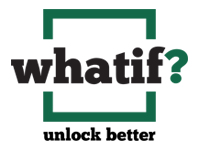
“Let’s Not Regress to the Mean”
"Listening doesn’t slow things down. It keeps us from solving the wrong problem."
What if the most damaging message we send as leaders isn’t what we say, but what we quietly stop doing?
You’ve seen the recent headlines. Market demand is softening, and the biggest and most profitable companies are announcing AI-related job reductions.
When market conditions tighten, priorities often shift.
- Leadership development gets deferred.
- Client experience work is paused.
- Team rituals are scaled back.
- Coaching conversations become metric reviews.
The message isn’t always intentional, but it does land clearly:
We must press for performance. Sales and revenue take precedence, and everything else can wait.
It feels focused and even sounds rational, but it’s something else entirely. It’s a deliberate regression, not to clarity or discipline, but to the mean.
What Happens When We Press and Pause
When we pause growth practices under pressure, we don’t just delay them, we devalue them.
We tell our teams that empathy is optional and their development is expendable. That experience and trust are luxuries. And when demand softens, performance matters, and ‘people work’ must wait.
We may not say those things out loud, but our actions speak so loudly that our people and clients can’t hear the words we say. And people notice, clients notice, as do the teams we rely on to deliver what matters.
More than surface signals, they shape the culture. They influence how people show up or pull back. Not overnight, but eventually.
The False Choice Between Pressure and Principles
It’s an easy story to tell ourselves. I’ve done it myself. We’re in a cycle, and we need to move fast and stay sharp. While that story justifies urgency, it also creates a false dichotomy, and we must remind ourselves that when we make these trade-offs, we ultimately harm ourselves in the long run.
- Psychological safety is not a nice-to-have. It’s what allows risk, feedback, and innovation to continue moving forward.
- Listening doesn’t slow things down. It keeps us from solving the wrong problem.
- Leadership development isn’t a distraction. It builds the judgment and trust needed to lead through uncertainty.
When we replace principles with pressure, we may gain speed, but we lose direction.
Regression Dilutes Differentiation
When we drift toward what’s common, we lose what makes us distinct.
The companies that stand out continue to do the hard things. They invest in people when it’s least expected. They protect experiences when others retreat to transactions. They keep reinforcing trust, not when it’s easy, but when it matters most.
Pulling back on these things sends a different message. One that’s forgettable.
When you become easier to ignore, it shows up. Relationships strain, revenue softens, and reputation fades. And when the market settles, you’re no longer top of mind, you’re simply just average.
What Better Looks Like When it’s Harder to Do
Better isn’t louder. It’s clearer.
The best leaders hold the line.
- They continue to invest in what matters.
- They don’t collapse coaching into direction.
- They don’t press for production and call it grit or being scrappy.
- They don’t retreat from promises, they double down.
I know it’s not always easy to hold the line. Trade-offs are real, and so is pressure. Yet, how we lead through it is what builds trust or erodes it.
The best leaders know that culture isn’t something you protect; it’s something you nurture. It’s something you reinforce in the middle, especially when people are watching and when it’s hard.
Ask Yourself This
If you’re leading in a moment of constraint:
- What signals are we sending by what we’ve paused, cut, or deprioritized?
- Are we unintentionally telling our people or clients that values are conditional?
- Have we slipped into being efficient but easier to ignore?
- What would it look like to lead differently from the mean, even now?
Closing Thought
It’s tempting to trim what feels expendable to get through the quarter and be practical. But the minute we trade distinctiveness for convenience, we lose the relevance we spent years building, making our brand less durable.
If we want to be trusted, remembered, and chosen, we must lead intentionally in times of pressure.
If we want to stand out from the pack, we must resolve to keep the promises that matter and lead in a way that’s consistent, not conditional.
Let’s unlock better – together.
Kevin


Leave a Reply